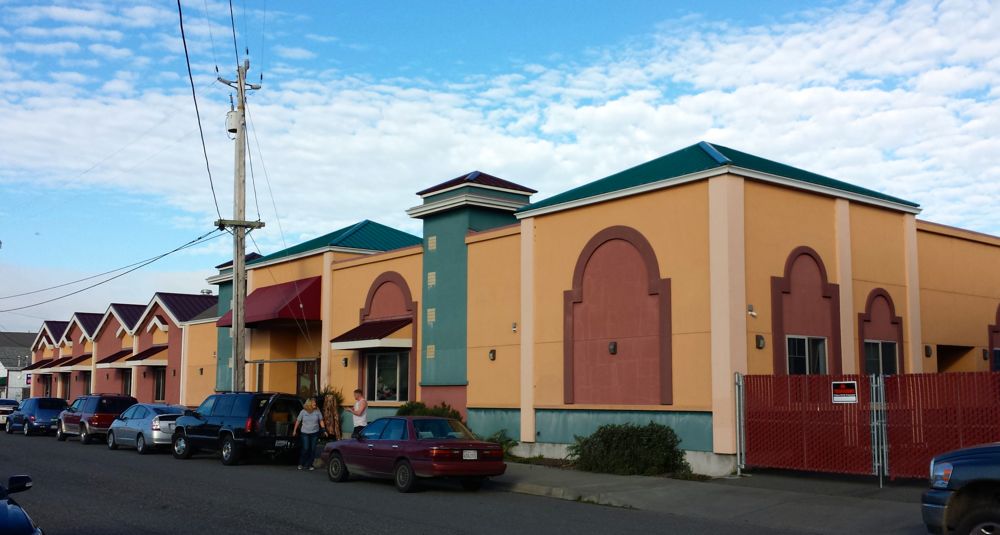
The following opinion piece was submitted to the Outpost by Korrin L. Bishop.
After a long workday in our nation’s capital, I received a message from my dad back in Humboldt County.
“Your issues are coming to a head in Frumboldt,” the message read, continuing our inexplicable love of whichever Humboldt County genius decided to combine the words “From” and “Humboldt.”
Accompanying the message was a link to Lost Coast Outpost’s recent article “Leaving the MAC: New Countywide Homelessness Strategy Sparks Concern Among At-Risk Families.”
I moved to the District of Columbia after graduating from college in 2011 with a mission to end homelessness in the United States. Since then, I’ve worked on federal homelessness programs as an analyst with Abt Associates. In this role, I work closely with policymakers at the U.S. Department of Housing and Urban Development (HUD), and also have the chance to speak with communities across the nation about their successes with federal strategies to end homelessness. Doing this work, it’s easy for me to see each day what’s working, and to be inspired by positive changes occurring within the homelessness services sector. However, my work truly hit home for me when I read about it happening back home.
From 3,000 miles away, I’ve followed Humboldt County’s growing struggle with chronic homelessness, and I’ve wanted to get involved and feel like I’m somehow still giving back to my community. When I read that Humboldt County will be redesigning its transitional housing program for families into a model that emphasizes Housing First and rapid re-housing, I finally saw these pie-in-the-sky federal policies I work on landing in my hometown, and it made me smile.
I understand the fears and pushback that come as a result of this big change. A comprehensive, effective safety net recognizes a community’s diverse needs and offers a full circle of care, which includes activities like transitional housing. However, nationally we are working with limited resources, and when doing so, it is important to focus those resources toward approaches that are actually reducing homeless numbers and doing so in the most cost-effective way possible.
Transitional housing may be an appropriate intervention for some individuals and families experiencing homelessness, but for many, the same outcomes can be achieved through rapid re-housing, and at a significantly lower cost. Transitional housing is one of the most expensive interventions for homelessness. It also makes the assumption that some people are not ready for housing. But we’re all ready for housing. Shelter is a basic need, and once people have permanent housing, it allows them to lower their daily level of stress, which can in turn have positive effects on other issues such as mental health, substance abuse, employment, and education. Effective rapid re-housing programs focus on the housing first, and then follow-up with other services that clients want or need. It empowers clients to make these decisions on their own, to take their path toward self-sufficiency one step at a time.
Humboldt County needs to focus on rapidly re-housing the families at the MAC [Multiple Assistance Center] and targeting remaining funds to Housing First programs for its chronically homeless population. This approach will not only save money but also allow us to put our compassionate Humboldt hearts into action. Humboldt County is unique, and change is hard, but I encourage all of the region’s denizens to imagine the full extent of what is possible, to imagine little Humboldt County joining the ranks of Salt Lake City, Phoenix, and New Orleans in ending chronic homelessness.
If you’re Frumboldt, get involved — vote for, support financially, or personally champion these local changes. Humboldt County can end homelessness.
Korrin L. Bishop was born and raised in Arcata and attended the University of Oregon where she studied planning, public policy and management. Her undergraduate thesis on the Homelessness Prevention and Rapid Re-housing Program led her to Washington, D.C., where she now works as an Analyst at Abt Associates assisting the U.S. Department of Housing and Urban Development and the U.S. Department of Veterans Affairs with their programs to end homelessness.
CLICK TO MANAGE